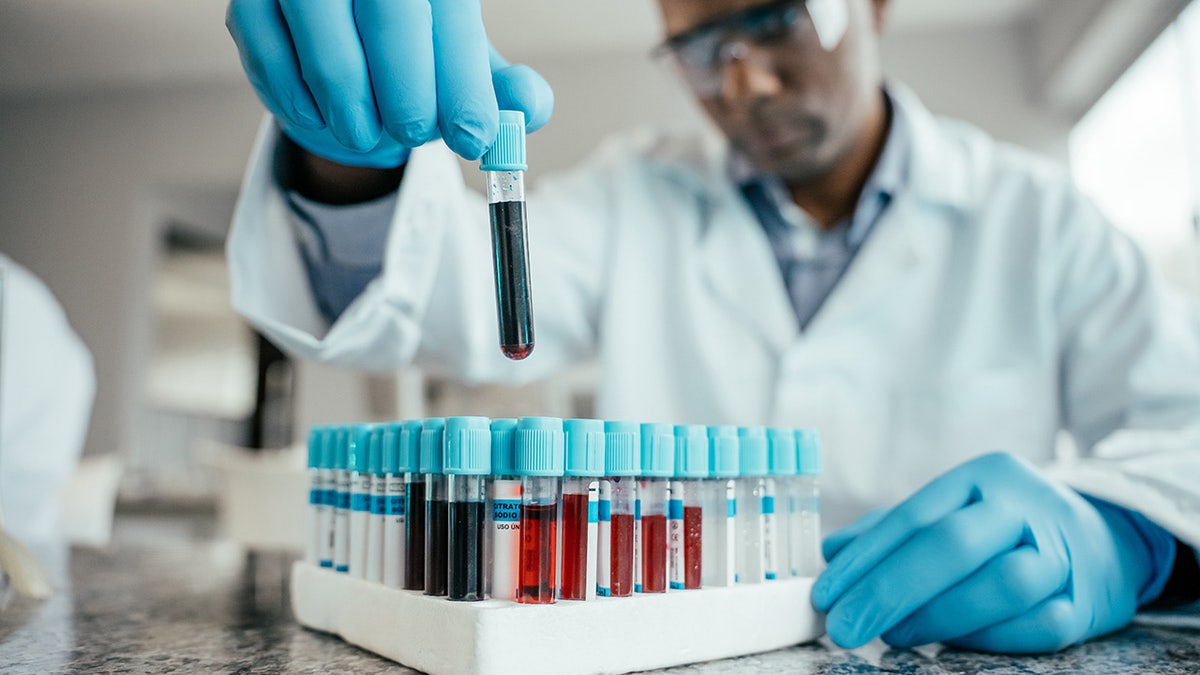NEWNow you can take heed to Fox Information articles!
Researchers at Johns Hopkins College say they’ve uncovered a complicated methodology for detecting cancer.
A brand new examine, revealed within the journal Most cancers Discovery and partly funded by the Nationwide Institutes of Well being, discovered that genetic materials shed by tumors will be detected within the bloodstream three years previous to a cancer diagnosis.
The researchers analyzed plasma samples from a big Atherosclerosis Danger in Communities (ARIC) examine to evaluate danger elements for coronary heart assault, stroke, coronary heart failure and different cardiovascular illnesses, in line with a press launch.
FDA APPROVES FIRST AI TOOL TO PREDICT BREAST CANCER RISK
Blood samples had been analyzed from 26 contributors who had been identified with most cancers inside six months of pattern assortment, and 26 who weren’t identified with most cancers.
Out of those 52 contributors, eight scored positively on a multi-cancer early detection (MCED) lab take a look at and had been identified with most cancers inside 4 months following blood assortment.

Genetic materials shed by tumors will be detected within the bloodstream three years previous to a most cancers prognosis, researchers discovered. (iStock)
MCED checks are an experimental kind of most cancers screening that appears for indicators of a number of sorts of most cancers on the identical time, in line with the American Most cancers Society.
These indicators could embody items of DNA, RNA or proteins from irregular cells.
CLICK HERE TO SIGN UP FOR OUR HEALTH NEWSLETTER
For six of those eight people, researchers had been capable of assess extra blood samples that had been collected 3.1 to three.5 years previous to prognosis.
In 4 samples, researchers identified tumor-derived mutations (genetic alterations inside most cancers cells).

“Three years earlier offers time for intervention,” famous the lead examine creator (not pictured). (iStock)
Lead examine creator Yuxuan Wang, M.D., Ph.D., assistant professor of oncology on the Johns Hopkins College College of Drugs, shared in a press release that investigators had been shocked by the outcomes.
“Three years earlier offers time for intervention,” she stated. “The tumors are more likely to be a lot much less superior and extra seemingly to be curable.”
For more Health articles, visit www.foxnews.com/health
Senior examine creator Bert Vogelstein, M.D., Clayton Professor of Oncology and co-director of the Ludwig Heart at Johns Hopkins, stated the examine exhibits “the promise of MCED checks in detecting cancers very early, and units the benchmark sensitivities required for his or her success.”

The researchers analyzed plasma samples to evaluate danger elements for coronary heart assault, stroke, coronary heart failure and different cardiovascular illnesses. (iStock)
Detecting most cancers years earlier than a scientific prognosis may assist “present administration with a extra favorable outcome,” stated senior creator Nickolas Papadopoulos, Ph.D., professor of oncology and Ludwig Heart investigator.
CLICK HERE TO GET THE FOX NEWS APP
“After all, we have to decide the suitable scientific follow-up after a optimistic take a look at for such cancers,” he added.
Fox Information Digital reached out to Johns Hopkins for remark.

